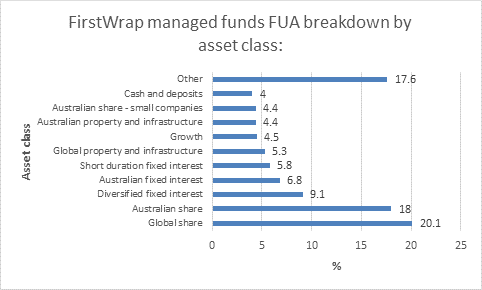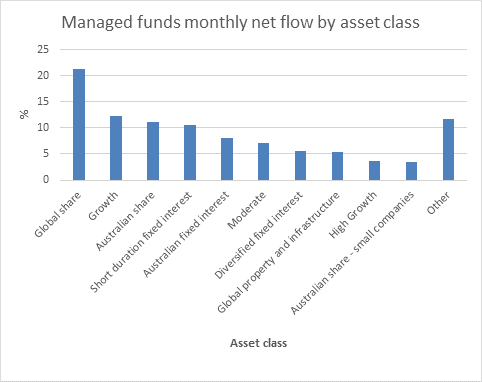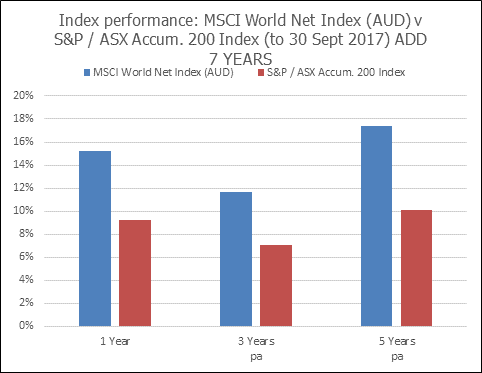Livewire Summer School: Australian investors finally favouring global equities
The underperformance of the Australian share market versus global equities over the past few years has assisted to break the back of the idea that you must invest domestically to get the best returns. But it’s only another reason why Australians are preferring to put their money into geography-agnostic vehicles.
For quite a while now I’ve been saying that the Australian equities market makes up approximately 2 percent of the MSCI World Index and that there are vast arrays of business sectors that are unrepresented in Australia or represented in such a small way that they make little difference to overall portfolio returns.
As a nation we may have heavy exposure to banks and miners, but opportunities for domestic-only investors to access global leaders like payment systems Visa, pharma giant Pfizer, or Alphabet, are few and far between. We believe there is one global market, not distinct geographies. We don’t discriminate – we value securities using the same philosophy and process whether they are located in, or outside of, Australia.
There are other reasons why Australian-based investors have kept their money at home. Dividend imputation has been chief among them, with grossed up yields anchoring Australian investors’ overall post-tax returns. Companies have certainly recognised the importance of fully franked dividends, doing whatever they can to shore up their franking accounts. The S&P/ ASX 200 index is the best-yielding equities benchmark among the 12 biggest stock markets globally.
Some of the reasons why global equities have been unattractive are more irrational. The home bias that many investors still have seems based on knowing the companies’ names and interacting with them on a regular basis. This may not just be an Australian trait – it occurs in the US, Japan and other developed markets – but this is even more of a curiosity here because our market makes up such a small amount of the global listed environment, further concentrating the risks of keeping all your money in one (relatively) micro market.
What’s made it most hard to convince investors of the value of going global is that the Aussie market - understandable, familiar – had outperformed global shares; the anchor provided by dividend income has acted as a cushion when the rest of the world has seen volatility – the GFC, the Chinese economic growth scare, among the most recent examples.
The benefits of global roaming
We’ve talked about it for a long time, but Australian investors are now over their ‘better at home’ mindset. Colonial First State’s FirstWrap platform is showing that in managed funds there is now more money in global equities than in any other asset class – 20.1% of the total, with Australian shares at 18.0% (noting that ‘Australian smaller companies’ is separately categorised).

FirstWrap’s monthly net flows are even more indicative of the current move towards global equities investment.

Global shares accounted for 21.3% of inflows in August, clearly ahead of ‘Growth’ (which itself has a significant global equity component) and close to double Australian shares.
What’s swung the pendulum?
I’d like to say that the evangelists have finally gotten through. But returns talk louder than I can.

Over standard time periods, the MSCI World Net Index (AUD) is now outperforming the S&P/ ASX Accumulation 200 Index (inclusive of income returns). As the GFC fades in the rear-vision mirror, investors have favoured growth-oriented markets and stocks, rather than the safety provided by Australian stocks like banks and fully franked dividends. This is not to say that there are not opportunities in Australia, but it has become increasingly difficult for investors in vanilla, long-only stocks (or those who manage those kinds of stocks) to produce adequate returns.
Add to that that the average dividend payout ratio of S&P/ASX 200 companies is now at 76% - down from the 86% of CY16 but still above its long-term average of around 75 per cent. Further yield increases from here are likely to be marginal, while at the same time the likely rise in in interest rates is impacting on dividends’ relative long-term attractiveness. In such an environment, capital growth becomes more important than a refund from the tax office, and that is most likely to continue to come from global markets.
Although we also find market anomalies in Australia, it stands to reason that market anomalies are more likely to be found globally. Our investment process, developed over 20 years, is based on our belief that approximately 80% of the market is fairly priced. However, with the global investable pool so large the remaining 20% - where the probability of the consensus view being wrong and subsequent market anomalies existing is highest – still provides more than enough opportunities to discover and exploit value.
2 topics

